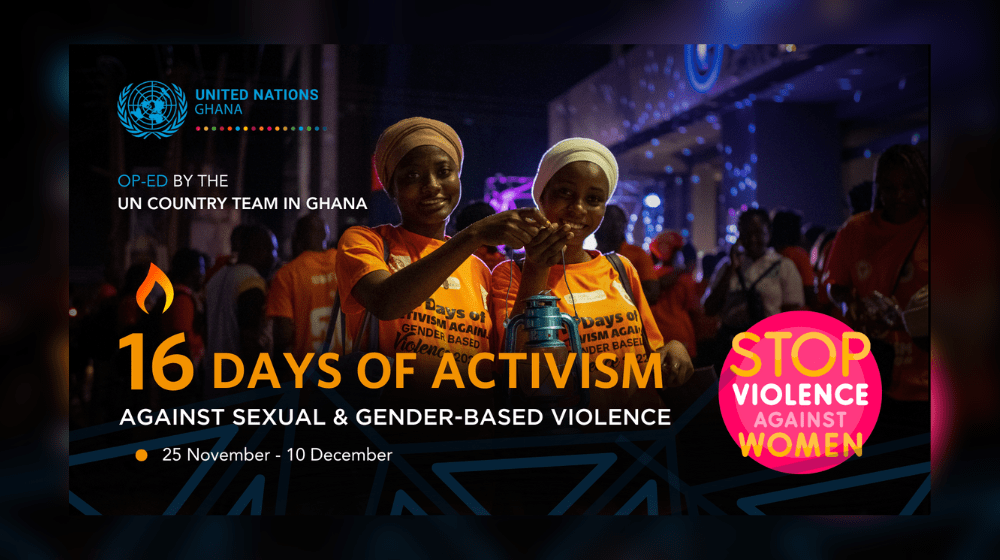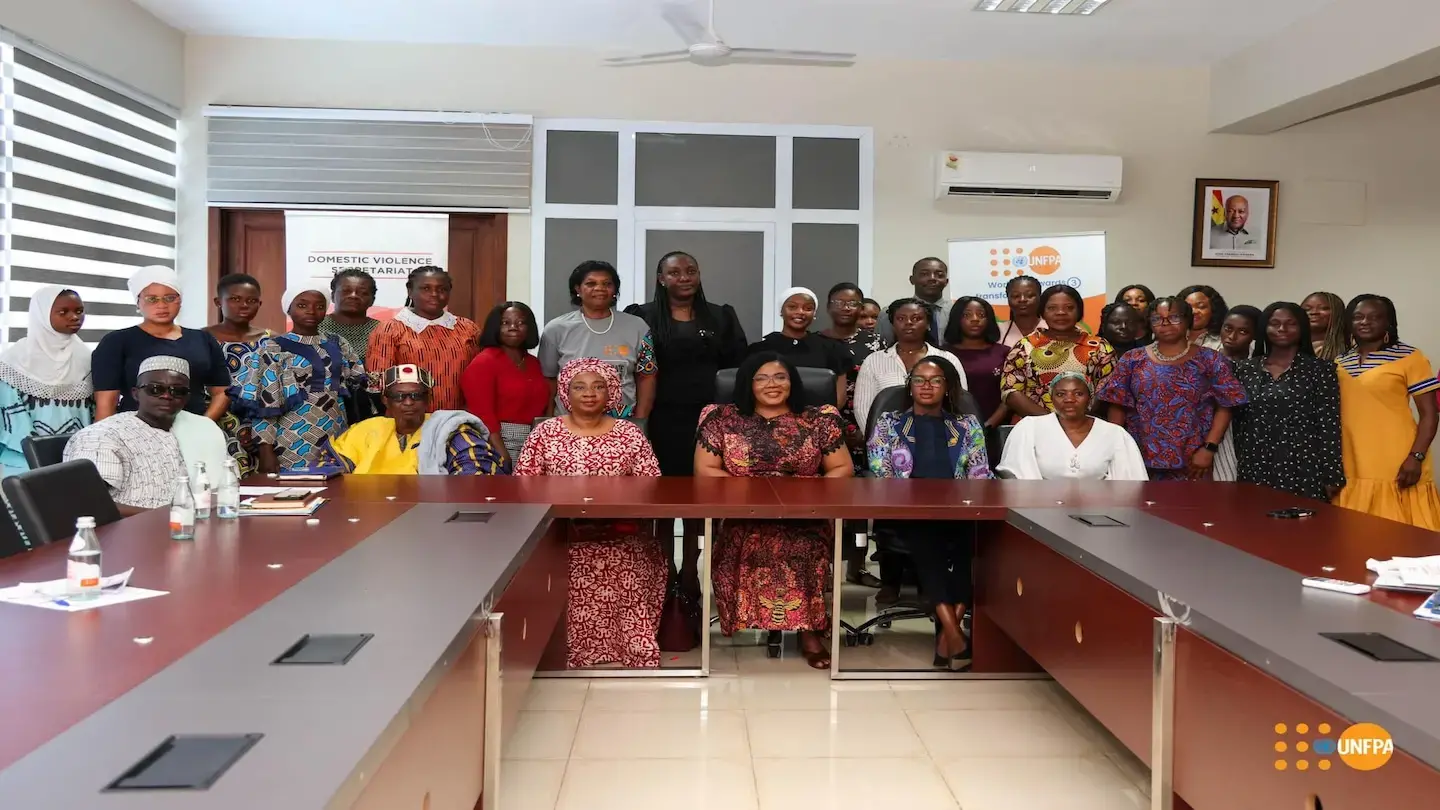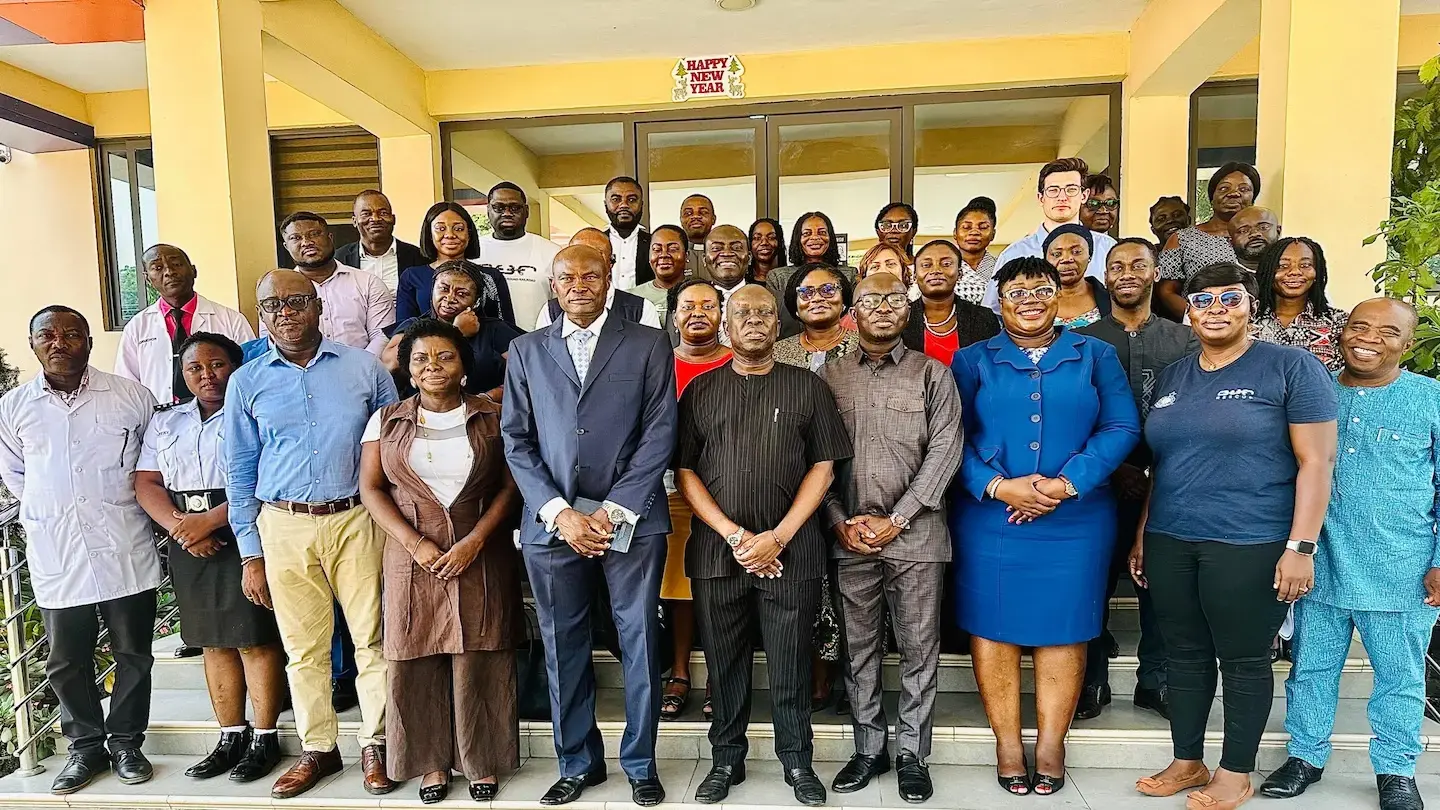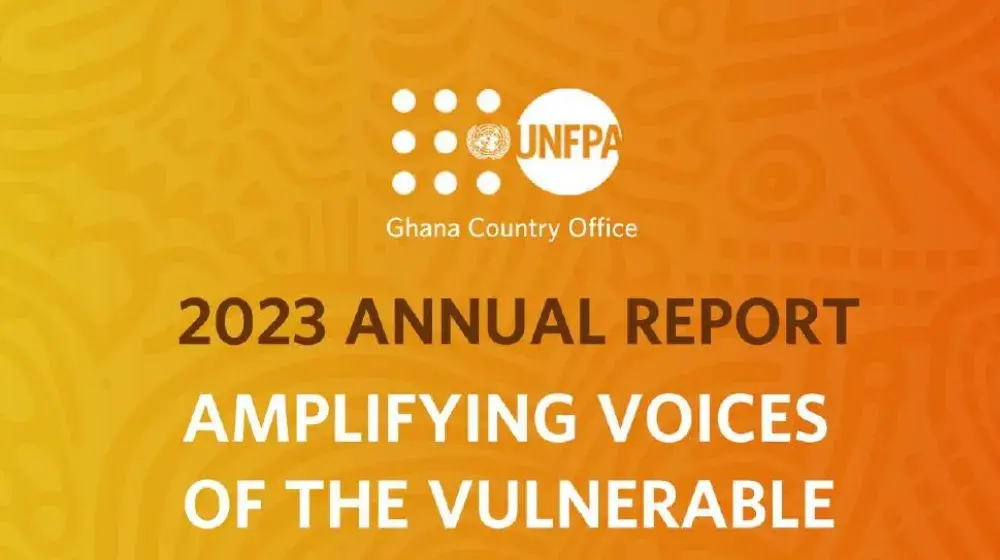"UNiTE! Invest to Prevent Violence against Women & Girls"
16 Days of Activism against Gender-Based Violence 2023 Op-ed by the United Nations Country Team in Ghana
Gender-Based Violence (GBV) is one of the most systemic and widespread human rights violations. The United Nations recognises GBV not only as a horrific violation of human rights but also as a public health crisis and a major obstacle to peace and security and sustainable development. The statistics are dire, and we have known this for several years now. GBV predominately affects women, and globally, one in three women experience physical or sexual violence at least once in their lifetime, and more than five women or girls are killed every hour by someone in their family. For many women and girls, no place is completely safe as violence invades their homes, schools and workplaces, including the emerging but alarming trend of violence in their digital lives. GBV manifests in various forms, from sexual harassment and abuse to femicide, child and forced marriages and female genital mutilation.
In Ghana, statistics on GBV reflect this global gloomy picture. According to the Ghana Statistical Service (GSS), about 24.4% of women between 15-49 years’ experience intimate partner physical and/or sexual violence at least once in their lifetime. In addition, 19.2% of ever-partnered women aged 15-49 years’ experience intimate partner physical and/or sexual violence and 19.3% of women aged 20 to 24 years were first married or in union before their 18th birthday.
The real question is: how much does the world care about ending GBV in the face of these alarming statistics? The answers to this question, which would help outline and advocate for investments and solutions by governments, civil society and the private sector in curbing GBV should be the central focus as we embark on the 16 Days of Activism against Gender-Based Violence for 2023, under the global theme "Unite, Invest to Prevent Violence against Women and Girls".
The 2023 theme asks us to reflect on the urgent need for collective action and financial commitment to eradicate GBV. This is fundamental as it not only underscores the severity of the problem but also highlights the importance of proactive investment in prevention strategies. It is a stark reminder that despite progress in many areas, the shadows of abuse and discrimination still loom large. Therefore, it is incumbent on us now, more than ever, to channel our collective energy and resources towards tangible solutions, not merely in financial resources but also in time, energy, and advocacy to prevent GBV. It challenges us to reflect on our GBV investments to ensure that the focus is on creating a systemic change.
Without extensive investments to scale up prevention programmes, implement effective policies, and provide support services to address violence against women and girls, countries will fail to end GBV by the stipulated 2030 timeline to achieve the Sustainable Development Goals (SDGs). Currently, only one-quarter of countries worldwide have systems to track budget allocations for interventions aimed at achieving overall gender equality and data on national budgets to address GBV are hardly available. Of utmost concern is the fact that it is unclear how countries are integrating prevention across different sectors, such as education, health, economic development, and social protection to ensure coordinated response to GBV. This work is too important to be siloed!
The call to action is therefore clear; governments must unlock financing from different sectors and adjust national budgets towards measures to prevent GBV. Private sector and civil society actors too must come to the table to truly integrate efforts realistically, bringing their comparative advantages to bear on this desperately inexcusable injustice.
Investment efforts should focus on integrated approaches and build interlinkages through education that challenges harmful stereotypes, legislation that protects women's rights and support systems that empower survivors to rebuild their lives in a victim/survivor-centered approach.
We must re-evaluate social norms and dismantle structures that perpetuate gender inequality. By investing in education, awareness campaigns, and support services, we will foster environments that empower women and challenge the toxic narratives that fuel violence.
Support systems are the backbone of recovery for survivors of violence. Investments in essential services such as shelters, counseling services, and rehabilitation programmes are thus crucial for aiding survivors on their journey towards healing and empowerment. Governments, private sector actors and civic organizations must therefore enhance services and make them readily available, culturally sensitive, and inclusive of all women and girls, regardless of their background, and this requires particular attention in the case of Ghana as a country.
It is also vital to focus on the pivotal role legislation plays in protecting women and girls from violence and on the intersection of this with other forms of marginalization – for example affecting persons with disabilities. We must work towards eliminating legal loopholes that allow perpetrators to escape justice and ensure that survivors have access to fair and impartial legal recourse. Governments, corporations, and individuals must step up and allocate resources to programmes that address the root causes of gender-based violence.
Finally, we must integrate comprehensive programmes that teach respect, consent, and gender equality, in order to build a generation that nurtures an environment that views violence as an intolerable breach of human rights, catalyzing commitment and action.
Investing in preventing violence against women and girls is crucial to achieving gender equality by 2030, in line with the Sustainable Development Goals. As such, during the next 16 days, as Ghana joins the rest of the world to mark the annual campaign against GBV, we must move beyond the rhetoric into concrete, measurable actions that will create a safer world for women and girls. Every effort invested in preventing violence against women is a step towards a safer, equal, and prosperous world so let us seize this moment to build a future where women and girls can live free from the shackles of violence.
Together, through strategic investments, as well as individual actions that engage in conversations that challenge harmful stereotypes, and hold leaders accountable for implementing policies that protect and empower women, we can create a world that is truly safe and equitable for all. Ghana can do this. Let’s walk the talk together - intentionally and with purposeful action – let's make GBV history!!!





